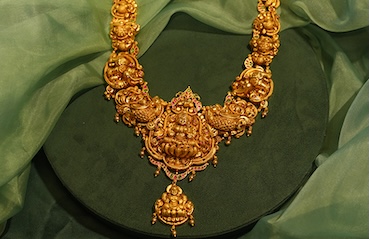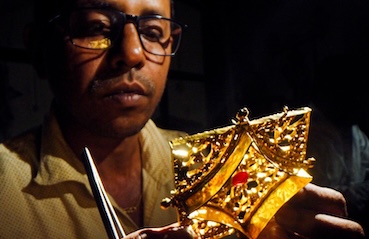Published: 12 Mar 2018
Alexander the great’s 1000 talents of gold!

Prince Ambhi or Omphis Taxiles is an infamous name in the history of India’s invasion. He is portrayed as a traitor since he invited Alexander to retaliate his arch-enemy, King Puru or Porus. King Puru governed the territory between the present-day Chenab and Jhelum (Hydaspes) Rivers in the Punjab. Whereas Ambhi was the ruler of Taxila, his land lay between the Jhelum’s northern banks right up to the Gandhara (present day Kandahar of Afghanistan). When Alexander invited chieftains of the former satrapy of Gandhara, some of the hill clan chieftains – Aspasioi and Assakenoi parts of Ashvayanas and Ashvakayanas (Kambojas) refused to surrender except for Ambhi. He quickly surrendered to Alexander with valuable presents. However, Alexander returned Ambhi’s presents and title, and instead gifted him 30 horses, 1000 talents of gold (25000 – 60,000 kg), a wardrobe of Persian robes, gold and silver ornaments.
So, does it mean that Ambhi accepted Alexander as the vanquisher of the world or Alexander was trying to seal an alliance at such a magnanimous price?
Colonel historians portrayed Ambhi as a traitor, who provided neutrality and supplies at a fabulous price to the travelling army that were securing their own borders. However, this act of Alexander gifting Ambhi provoked much outrage and envy in his camp. It impelled Meleager, his officer, to congratulate Alexander sarcastically for having found at least one man in India worth 1000 talents. Alexander retorted that envious men only distress themselves.
Well, the question is, if Ambhi wanted Alexander to wage a war against Porus, isn’t it more logical for Ambhi to pay Alexander to do so? On the contrary, Alexander bribed Ambhi to fight along with him in the war against Porus. But, if Ambhi has voluntarily come over to Alexander’s side, why would someone pay a willing ally (a minor king!) such a large amount? Isn’t it all fishy?
After defeating Persians (331 BC) in the battle of Gaugamela, it is estimated that the Greek captured 100,000 talents (25,00,000 kg) of gold. However, after winning the battle with Porus, Alexanders loot and pickings from India were almost negligible. This is strange, as in those days India was swimming in gold, precious stones and metals. So, some historians argue that Alexander neither won any considerable victories nor could he get his hands on the substantial loot.











